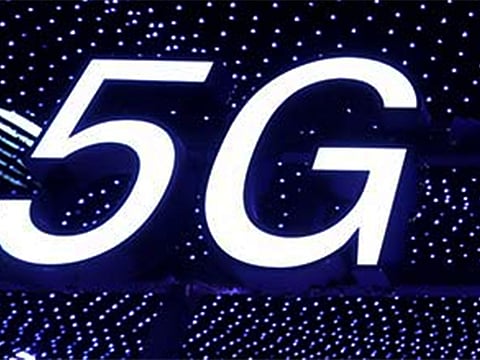The promise of 5G goes beyond user experiences
Whole cities can aspire to the ‘smart’ tag getting on next-gen communications platform

Also In This Package
In 2010, the premise of 4G LTE wireless connectivity signalled a societal and economic shift of previously unseen proportions. This technology laid out a refreshing future for the wireless industry through establishing a foundation for prompt device development, faster networks, and new applications.
There was a sentiment in the air that gestured we were on the cusp of the next big thing; a revolution like nothing before. The buzz and hype created around 4G was contagious.
If we fast-forward to the present day, we find ourselves in a similar position — albeit more profound. As we near the realisation of 5G mobile experiences, anticipation is mounting for the promise of new immersive realities, smart city innovations, and billions of connected Internet of Things (IoT) sensors and devices. Moreover, the latest advancement in cellular connectivity is promising a new array of use cases and unforeseen opportunities that will power the societal and economic progress of tomorrow.
Like the 4G revelations of 2009-10, 2019 marks a landmark year for the 5G era. Within the last decade, the penetration rates of smartphones and wireless mobile devices proliferated to a point where billions everyday are benefiting from the democratisation of connectivity as a basic everyday human right.
The use cases for 5G will shape the development of the 5G networks and future commercial deployments. There are three main categories of use cases, and these are enhanced mobile broadband (eMBB), Ultra Reliable Low-Latency Communication (uRLLC) and Massive Machine-Type Communication (mMTC).
With 5G, we are set to see next-generation technology transform the world to another level. Through nascent technologies such as the Internet of Things (IoT), Augmented Reality (AR), Virtual Reality (VR), cloud-based gaming, Artificial Intelligence (AI), intelligent robotics and machine learning, 5G will redefine key industrial sectors, governments and consumers’ lives.
Given that the current network technologies, frameworks, and architecture are insufficient in coping with the immense demands of these digital technologies, 5G will bring welcome relief for a new generation of hyper-connectivity.
In the UAE, the commercialisation of 5G is expected to fulfil the need for faster speeds, lower latency and the propagation of connected devices. However, it will also be integral towards driving progress, creating new jobs and supporting the exponential growth of data transmission.
On an industrial level, the automotive, manufacturing, health care, education, agriculture and finance industries are just some of the many key sectors set to profit from 5G roll-out in the long term. With both wide-area IoT, cellular IOT and short-range IoT, industry forecasts predict the number of cellular IoT connections to reach 4.1 billion by 2024.
A future where autonomous vehicles are interconnected to city infrastructure and other vehicles, or where doctors can perform advanced remote surgical procedures and wireless health care, is no longer impossible thanks to 5G.
For consumers, the experience dividend of 5G will power seamless transitions through daily life and empower people to do things that they couldn’t do before. Mass adoption of 5G will change the landscape as we know it; citizens and residents will be able to fully utilise connected devices.
This means they will be able to use AR applications to help them while shopping, enjoy seamless real-time cloud gaming ecosystems, or 8K video and real-time 360-degree virtual reality.
Most importantly, for the UAE, the smart city vision will also come to life with 5G. Personalised smart city experiences will become the norm as new technologies spring to life to create more seamless transitions through daily life. Everything from real-time traffic data and improved emergency response times, to intelligence-enabled interactions between e-governments and citizens will come into fruition powered by 5G networks.
5G will give life to a hyper-connected reality, but this goes beyond being merely a technological evolution. It will give rise to socioeconomic transformations that are more profound than what we experienced with 3G and 4G. 5G will move from connecting people to each other and to information, towards connecting them to absolutely everything.
The 5G experience will set the precedent for things to come as networks near readiness for the revolutionary potential of tomorrow. The only question to answer is this: Are you ready for 5G?
Saleem AlBlooshi is Chief Technology Officer at du.

_resources1_16a0852839e_medium.jpg?w=320&auto=format%2Ccompress&fit=max)



